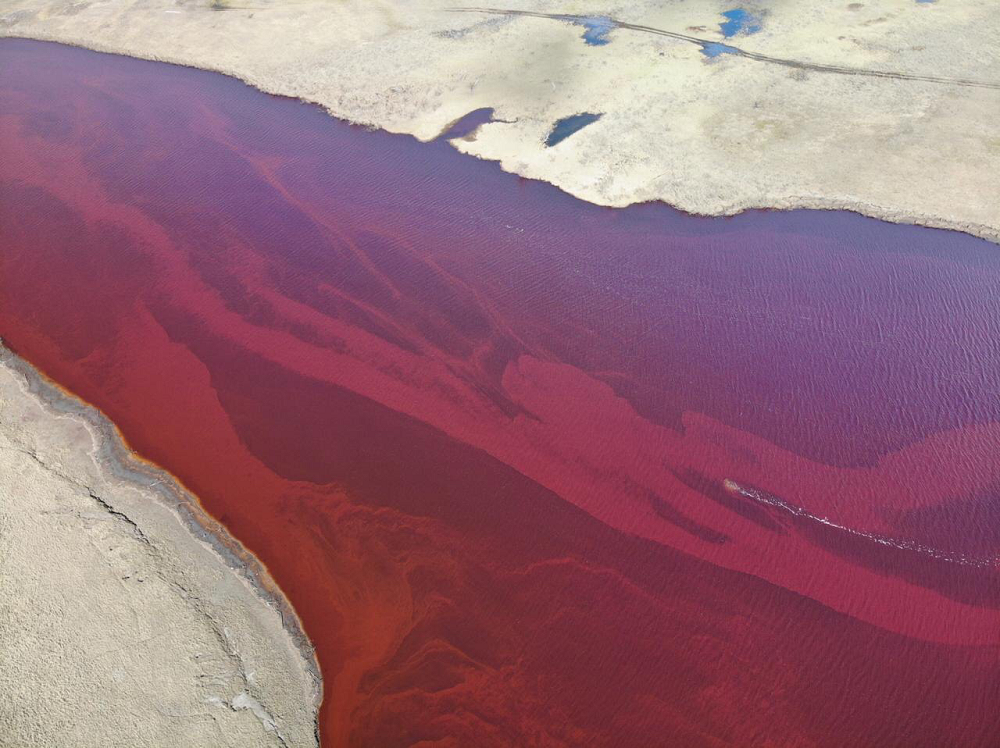
Russian miner Norilsk Nickel is facing tough questions after a fuel spill at a subsidiary-operated power plant in Siberia poured thousands of tonnes of diesel into nearby waterways.
On 29 May, a storage tank at the facility – known as CHPP-3 and run by Norilsk-Taimyr Energy Company (NTEK) – was damaged following the “sudden subsidence” of its support structure, causing 21,000 tonnes of diesel fuel to leak into the surrounding area, contaminating the Ambarnaya river and turning it red.
A state of emergency has now been declared by President Vladimir Putin as clean-up operations get underway at the site of the spill near the industrial town of Norilsk, which lies in the far north of the country within the Arctic Circle and is built on a continuous permafrost.
Norilsk Nickel’s operational director Sergey Dyachenko, who has visited the scene, said: “We can assume that permafrost could thaw as a result of abnormally mild temperatures, which led to a partial subsidence of the supports on which the tank stands.”
Conflicting reports over how the Norilsk Nickel diesel spill was reported
The mining firm, also known as Nornickel, is the world’s largest producer of palladium and one of the largest nickel, copper and platinum producers.
Criticism has been aimed at the response to the incident, with conflicting accounts about how it was reported to authorities in the immediate aftermath.
Local officials claim to have only learned of the spill two days after it happened via social media, but Norilsk has disputed this, saying the relevant authorities were “timely and duly” informed on the day of the event.
Criminal probes are underway, which have so far led to the arrest of the power plant’s head of boiler and turbine workshop Vyacheslav Starostin, who is yet to be charged.
“Investigations are ongoing to identify all those involved in the environmental disaster,” said a spokesperson for Russia’s Investigative Committee — an anti-corruption agency.
“Seizures of documents, information carriers with records of telephone conversations of employees responsible for operational reporting, and logs of recording negotiations on the fact of an emergency were made.”
Environmental clean-up operation could take decades
According to Russia’s federal department for natural resources, Rosprirodnadzor, the fuel spill – thought to be the second-largest in the country’s history – has spread across 20 kilometres of waterway.
“Almost all tributaries of these rivers are filled with oil,” said the agency’s boss Svetlana Radionova.
NTEK director Sergey Lipin said in a statement: “The company has the necessary forces in mechanization and material resources. The situation is under control.”
An aerial survey has established that the oil flowed through the Daldykan River into the Ambarka River and is now contained by several booms. Crews are working intensively to collect and dispose of the spilt oil. Nornickel will do its maximum to resolve this ASAP. pic.twitter.com/xcIaqezP9n
— Nornickel (@NornickelGroup) June 2, 2020
Greenpeace Russia suggests the clean-up costs of the water damage alone could run to more than six billion roubles ($87m), while other estimates predict an eventual cost of RUB100bn ($1.4bn) over a period of up to 10 years.
A statement from the Russian federal fisheries agency (Rosrybolovstvo) said restoring an ecological balance in the region would take tens of years, and that the scale of the incident is “underestimated”.
In 2016, Norilsk Nickel admitted responsibility for a chemical leak into the Daldykan river in Russia, after heavy rains damaged a filtration dam at its Nadezhda metallurgical plant.



